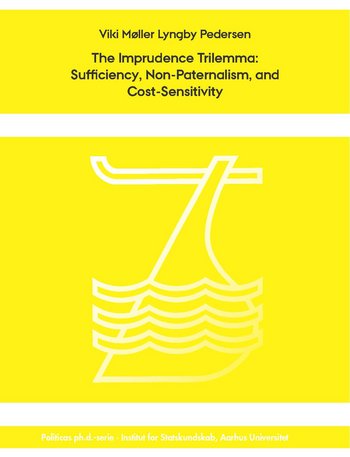Viki Møller Lyngby Pedersen
The imprudence trilemma: Sufficiency, non-paternalism, and cost-sensitivity

This dissertation examines how we should respond to situations in which a person acts profoundly imprudently. E.g., we can imagine the motorcyclist who prefers to drive without insurance and without a helmet. How should we, or the policy-makers, counter such imprudent activities performed by others? In response to this question, it has been argued that no matter what we choose, our choice seems to compromise at least one of the following moral considerations: i) satisfying sufficiency, ii) avoiding paternalism, or iii) internalising the costs associated with the risky activities (so that the person performing the activity carries the relevant costs). Together, the three considerations seem to constitute a trilemma, the so-called ‘imprudence trilemma.’ The dissertation argues that we should accept paternalism when people act so imprudently that they risk suffering serious, absolute deprivation as a result (i.e. in cases of relevance to the trilemma). That is not to say that we should always interfere when a person acts profoundly imprudently. The paternalistic view defended is that it is a good and relevant (but not necessarily decisive) reason in favour of interfering with a person’s voluntary choices that such interference will promote the person’s interests or well-being. Pace the anti-paternalistic view, I argue that such reasons should be included in the assessment of policies and actions that interfere with people’s liberty or autonomy.
![]() Ophavsretten tilhører Politica. Materialet må ikke bruges eller distribueres i kommercielt øjemed.
Ophavsretten tilhører Politica. Materialet må ikke bruges eller distribueres i kommercielt øjemed.